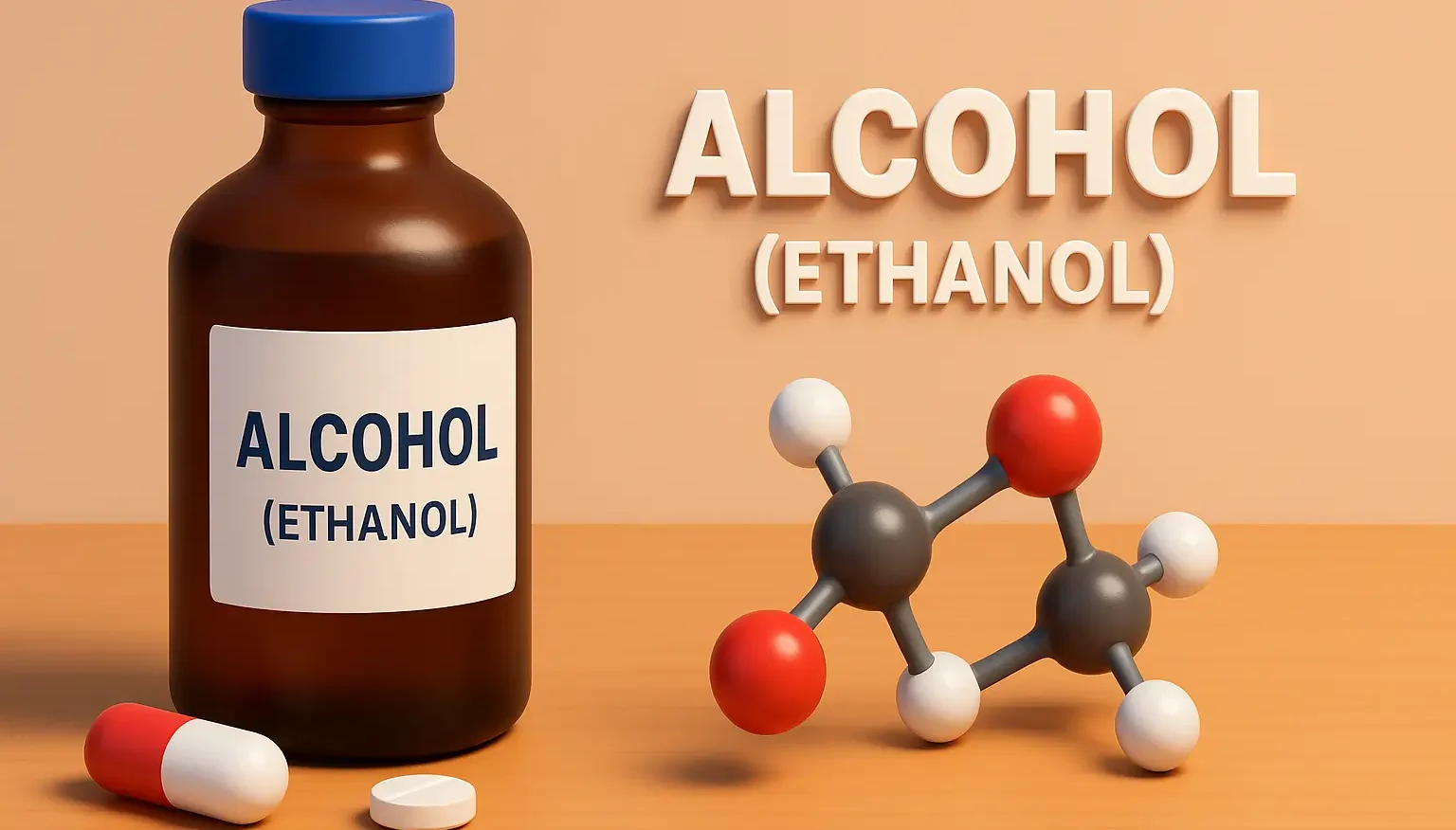Alcohol (Ethanol) is a CNS depressant that affects mood, behavior, and coordination, commonly used socially but linked to dependence and toxicity.

Pharmacological Actions:
- Ethanol is a CNS depressant.
- It acts by enhancing GABA-A receptor activity (inhibitory neurotransmission) and inhibiting NMDA-type glutamate receptors (excitatory neurotransmission).
- It produces dose-dependent CNS depression, from disinhibition to sedation, anesthesia, and even coma at high doses.
Absorption:
- Rapidly absorbed from the GI tract.
Metabolism of Alcohol (Ethanol):
Step 1:
- Ethanol → Acetaldehyde
- Enzyme: Alcohol Dehydrogenase (ADH)
- Location: Liver cytosol
- Cofactor: NAD⁺ → NADH
- Effect: Produces acetaldehyde (toxic intermediate)
Step 2:
- Acetaldehyde → Acetate
- Enzyme: Aldehyde Dehydrogenase (ALDH), mainly ALDH2
- Location: Mitochondria
- Cofactor: NAD⁺ → NADH
- Effect: Produces acetate (non-toxic), which is used in energy metabolism
Step 3:
- Acetate → Acetyl-CoA
- Enzyme: Acetyl-CoA synthetase
- Acetate enters muscle and other tissues → converted to acetyl-CoA for the TCA cycle
Acute Effects of Alcohol (Ethanol):
- Euphoria, sedation, slurred speech, impaired motor function
- Vasodilation, hypoglycemia, gastric irritation
- At high doses: respiratory depression, coma, death
Chronic Use:
- Liver damage: fatty liver → hepatitis → cirrhosis
- Neurological: peripheral neuropathy, Wernicke-Korsakoff syndrome (due to thiamine deficiency)
- Psychological: dependence, tolerance, withdrawal symptoms
- Cardiomyopathy, pancreatitis, GI cancers
Withdrawal:
- Symptoms: Tremors, anxiety, seizures, hallucinations, delirium tremens (DTs)
- Treatment: Benzodiazepines (e.g., Lorazepam), thiamine, supportive care

